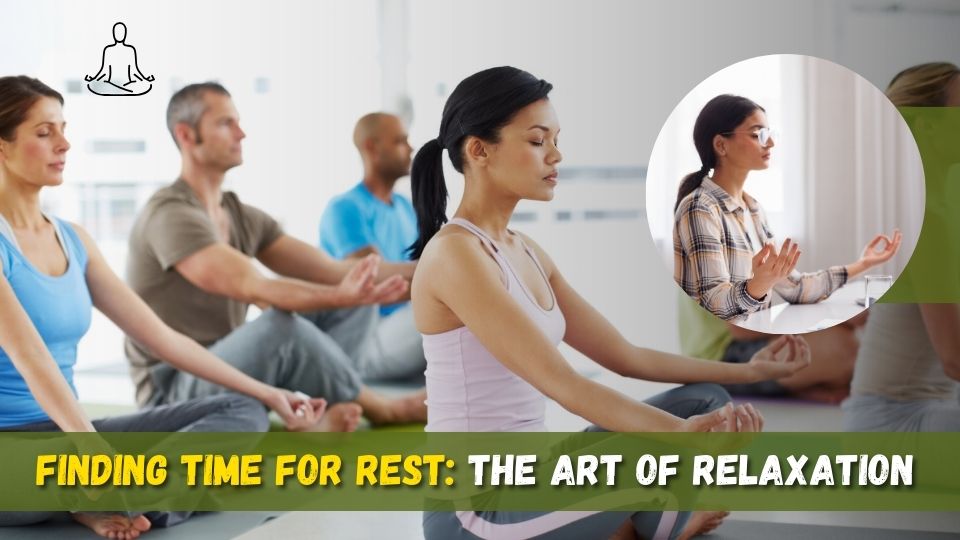Finding Time for Rest: The Art of Relaxation

Introduction
It can seem like a luxury to find time for relaxation in the fast-paced world of today. But rest and renewal must come first if you want to be well overall. This site serves as a manual for the art of relaxation, providing helpful tips and ideas for scheduling peaceful periods in between your busy days.
Understanding the Importance of Relaxation
The Impact of Stress on Health
Benefits of Relaxation
Continuous stress damages the body and mind and can result in a variety of health problems. The physiological impacts of stress and how important it is to relax in order to reduce its negative effects.
Making Time for Relaxation
Prioritizing Self-Care
The cornerstone of relaxation is self-care, which enables you to refuel and restore your energy. Easy self-care techniques that you can incorporate into your everyday routine, like deep breathing exercises, moderate yoga, and mindfulness meditation .
Setting Boundaries
Establish limits and learn to refuse things that make you feel overwhelmed and low on energy. You can prioritise your needs and carve out time for relaxation without feeling guilty when you set good limits.
Relaxation Techniques and Strategies
Mindfulness Meditation
Cultivate inner peace and serenity through the transformational power of mindfulness meditation. To relax, mindfulness in your daily life and make meditation a part of your schedule.
Progressive muscle Relaxation
Then release each muscle group in the body by practicing the progressive muscle relaxation technique. This exercise helps you decompress after a demanding day by encouraging bodily relaxation and releasing tense muscles.
Breathing Exercises
Easy breathing techniques can ease tension and promote mental calmness. Maximise the power of your breath with methods like diaphragmatic and alternative nostril breathing.
Creating a Relaxation Ritual
Establishing a Bedtime Routine
Create a nightly routine that lets your body and mind know when it's time to relax and get ready for sleep. Calming pursuits like writing in a journal, reading, or having a warm bath can help you de-stress and calm down.
Connecting with Nature
An effective strategy to encourage relaxation and lower stress levels is to spend time in nature. Take a moment to relax and take in the beauty of nature, whether it's by sitting by a lake, or hiking in the mountains.
Digital Detox
Take a break from displays and unplug from technology to allow your mind to relax from continual stimulus. Every day, set aside some time to unplug and partake in analogue pursuits that feed your soul.
Finding Balance in a Busy World
Embracing Slow Living
The idea of slow living encourages people to take it easy and enjoy the little things in life. Develop presence, thankfulness, and attention in every moment so that you can completely appreciate life's abundance.
Setting Realistic Expectations
The pressure to produce more and be more productive all the time. Accept the idea of "good enough" and place a higher value on wellbeing and balance than on busyness and perfection.
Time for Relaxation
Exploring Relaxation Techniques
Explore the realm of relaxation further with educational articles, step-by-step instructions, and professional advice on how to achieve calmness and serenity in your day-to-day activities.
Creating a Relaxation Sanctuary
With these helpful tips for creating a peaceful area, you can turn your house into a relaxing retreat. From organizing and decluttering to adding calming colours.
Conclusion
Your body, mind, and soul will all benefit from you making time each day for relaxation. You can develop a sense of balance and serenity that improves all facets of your life by emphasizing self-care, establishing boundaries, and practicing relaxation techniques.





 Login with Facebook
Login with Facebook
 Login with Google
Login with Google